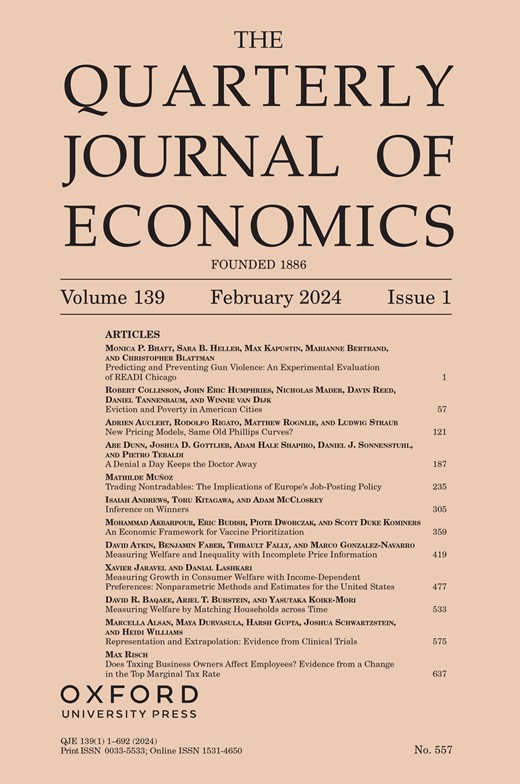公众抗议与政策制定
IF 12.7
1区 经济学
Q1 ECONOMICS
引用次数: 62
摘要
技术进步和社交媒体的发展使请愿、公众抗议和其他形式的自发行动主义越来越成为个人影响决策者的常用工具。为了研究这些现象,在本文中,我提出了请愿和公众抗议的理论,探讨了它们作为信息聚合机制的局限性。关键的假设是,有价值的信息分散在公民中。通过请愿和抗议,公民可以向政策制定者发送他们的私人信息,然后政策制定者可以选择使用或不使用这些信息。我首先表明,如果公民的个人信号不够精确,信息聚合是不可能的,无论知情公民的数量有多大,即使与决策者的冲突很小。然后,我描述了冲突的条件和保证信息聚合的信号结构。当满足这些条件时,我证明了当种群增长到无穷大时,完全的信息聚合是可能的。当他们不满意时,我表明,如果社交媒体可用,信息聚合仍然是可能的。本文章由计算机程序翻译,如有差异,请以英文原文为准。
Public Protests and Policy Making
Technological advances and the development of social media have made petitions, public protests, and other form of spontaneous activism increasingly common tools for individuals to influence decision makers. To study these phenomena, in this article I present a theory of petitions and public protests that explores their limits as mechanisms to aggregate information. The key assumption is that valuable information is dispersed among citizens. Through petitions and protests, citizens can signal their private information to the policy maker, who can then choose to use it or not. I first show that if citizens’ individual signals are not sufficiently precise, information aggregation is impossible, no matter how large is the population of informed citizens, even if the conflict with the policy maker is small. I then characterize the conditions on conflict and the signal structure that guarantee information aggregation. When these conditions are satisfied, I show that full information aggregation is possible as the population grows to infinity. When they are not satisfied, I show that information aggregation may still be possible if social media are available.
求助全文
通过发布文献求助,成功后即可免费获取论文全文。
去求助
来源期刊

Quarterly Journal of Economics
ECONOMICS-
CiteScore
24.20
自引率
2.20%
发文量
42
期刊介绍:
The Quarterly Journal of Economics stands as the oldest professional journal of economics in the English language. Published under the editorial guidance of Harvard University's Department of Economics, it comprehensively covers all aspects of the field. Esteemed by professional and academic economists as well as students worldwide, QJE holds unparalleled value in the economic discourse.
 求助内容:
求助内容: 应助结果提醒方式:
应助结果提醒方式:


